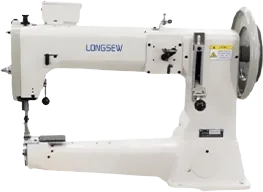Efficient Sewing Machines for Jute Bag Production and Crafting
The Importance of Jute Bag Sewing Machines in the Modern Textile Industry
In recent years, environmental concerns and sustainability have gained significant attention, leading to a rising demand for eco-friendly products. Among these, jute bags have become increasingly popular due to their biodegradable nature and versatility. Central to the production of these sustainable bags is the jute bag sewing machine, a vital piece of equipment that contributes to the efficiency and quality of jute bag manufacturing.
Jute, a long, strong vegetable fiber, is primarily cultivated in tropical regions and has been used for centuries in various applications. With the growing trend toward sustainable materials, jute bags have emerged as an excellent alternative to plastic bags. The jute bag sewing machine plays a crucial role in transforming raw jute fabric into finished products, ensuring durability, aesthetic appeal, and functionality.
The operation of a jute bag sewing machine is relatively straightforward, yet the technology involved has evolved significantly over the years. Unlike traditional sewing machines, these specialized machines are designed to handle the coarse texture and thickness of jute fabric. They are equipped with robust motors and heavy-duty needles that can withstand the demands of sewing multiple layers of jute. This not only ensures a stronger seam but also enhances productivity in manufacturing processes.
jute bag sewing machine

One of the key advantages of using jute bag sewing machines is the variety of bag designs they can produce. From simple shopping bags to intricate custom designs, these machines are versatile enough to cater to the diverse needs of consumers. This adaptability is essential for businesses looking to establish a unique brand identity in a competitive market. Moreover, many modern jute bag sewing machines come with advanced features such as automatic thread trimming, programmable patterns, and speed adjustments, allowing for greater precision and efficiency.
Sustainability is at the forefront of the current textile industry, and jute bag production aligns perfectly with this trend. Utilizing jute fabric not only helps in reducing plastic waste but also supports the livelihoods of farmers who cultivate jute. By investing in jute bag sewing machines, manufacturers can tap into the growing market for eco-friendly products while promoting ethical production practices.
In addition to their environmental benefits, jute bags are also cost-effective for consumers. They are reusable, sturdy, and exhibit excellent resistance to wear and tear. As more consumers become conscious of their purchasing choices, the demand for jute bags is projected to grow, creating a lucrative opportunity for manufacturers equipped with efficient sewing machines.
In summary, the jute bag sewing machine stands as a pivotal resource in the textile industry, driving the production of sustainable and fashionable bags. As the world shifts towards eco-friendly alternatives, these machines not only facilitate the creation of high-quality products but also contribute to a larger movement in promoting environmental sustainability. Investing in advanced jute bag sewing technology is not just a smart business decision; it is a step towards a greener future.
-
Boost Production Efficiency with a Pattern Sewing MachineNewsAug.29,2025
-
Industrial Excellence with the Best Heavy Duty Sewing MachineNewsAug.29,2025
-
Precision and Power with the Best Pattern Sewing MachineNewsAug.29,2025
-
Reliable Bulk Packaging Starts With the Right FIBC Sewing MachineNewsAug.29,2025
-
Advanced Packaging Solutions: Elevate Productivity with Jumbo Bag Sewing Machine and Industrial Stitching EquipmentNewsAug.29,2025
-
High-Performance Solutions for Bulk Packaging: FIBC Sewing Machine and MoreNewsAug.29,2025
-
Maximize Efficiency with an Industrial Cylinder Arm Sewing MachineNewsAug.28,2025


























